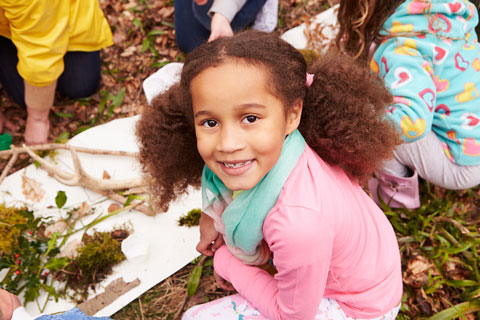Preschoolers like to investigate! They enjoy learning about the world around them. The Project Approach involves children in studies of things nearby that interest them and are worth knowing more about. Teachers can use the Project Approach to meet most of the Illinois Early Learning and Development Benchmarks. Projects are like good stories. They have three parts: a beginning, middle, and end. Here’s a summary of the three phases of project work.
Phase 1—Getting Started
- Children choose what to investigate, with some guidance from the teacher.
- The children discuss what they already know about the topic. The teacher helps children record their ideas.
- With help from the teacher, the children list questions that they want to answer during their study.
- Children talk about what answers they might find to their questions. The teacher lists their predictions.
Phase 2—Collecting Information about the Topic
- The teacher helps the children plan trips to places where they can do fieldwork and helps them find people to interview who can answer their questions.
- With adult help, the children use books and computers to find information.
- During class meetings, children report what they find in their fieldwork. The teacher encourages them to ask questions and make comments about each other’s findings.
- The children might make drawings, take pictures, write words and labels, create graphs of things they measured and counted, and construct models. As they learn more, they can revise what they have made.
Phase 3—Concluding the Project
- Children discuss the evidence they have found that helps them answer their questions. The teacher helps them compare what they have learned with what they knew before the project began.
- Children decide how to show what they did and what they found out to parents and peers who were not there.
- Children create displays to share the story of the project with others. Displays might include their drawings, notes, stories, taped conversations, photographs, models, graphs, and videotapes. Children can also act out what they have learned.
- The children might invite parents and other guests to a presentation about their project. The teacher can help the young investigators decide how to tell the story of what they did and what they found out.


 PDF
PDF